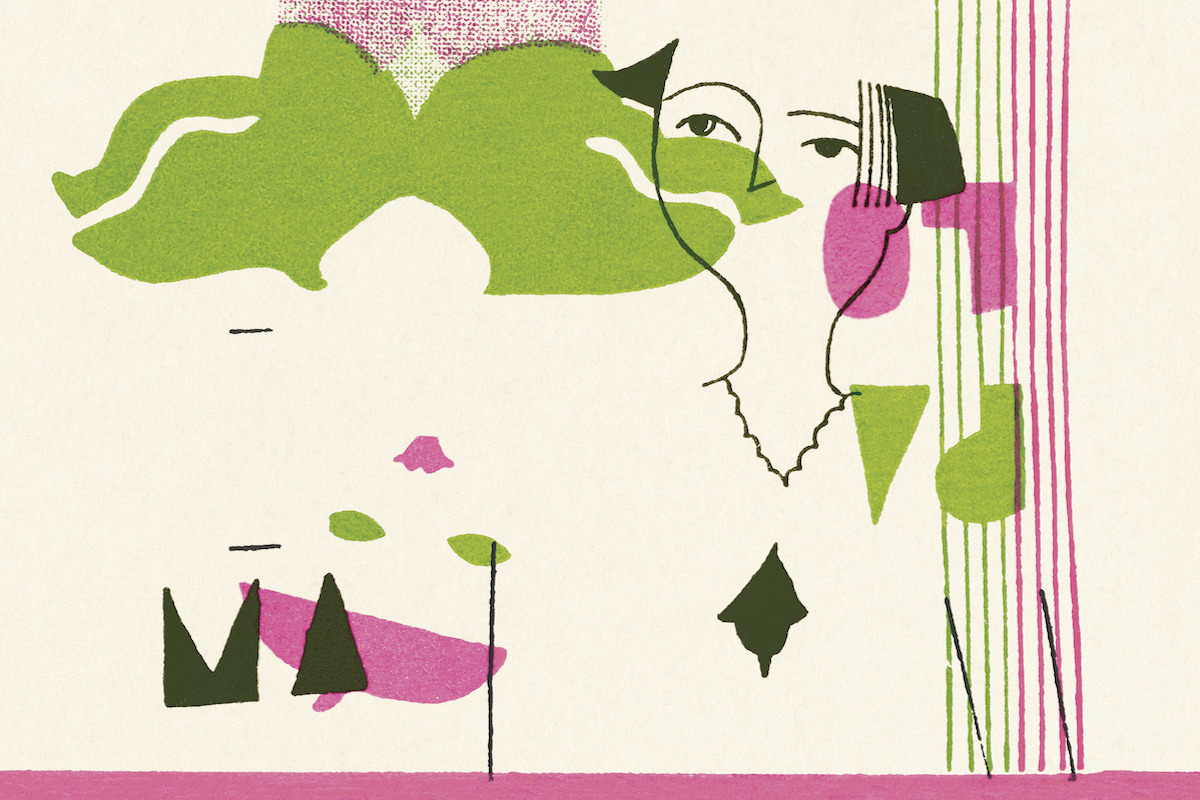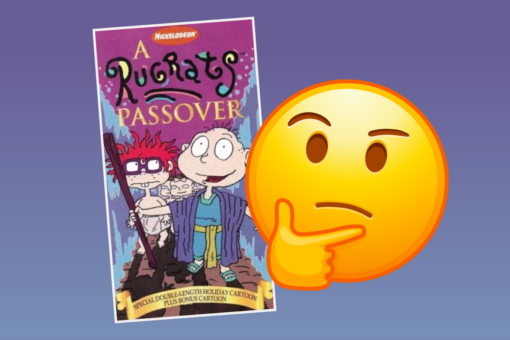I am a rabbi who doesn’t believe in God or lead prayer services. When I tell people that, they are often shocked or confused. But I actually have a lot more in common with most rabbis than people think.
To talk about what a secular rabbi is, it’s useful to think of what a secular Jew is. Sometimes when people describe themselves as secular Jews, they mean they’re unaffiliated and uninvolved — i.e. they don’t belong to a synagogue or partake in the larger organized Jewish world. But a lot of folks who are secular Jews might identify as atheist or agnostic, don’t attend synagogue services regularly, but are extremely engaged Jewishly. I’m talking about the people who celebrate Jewish holidays, watch Jewish films, read Jewish books — and love to grapple with what their Jewish identity means to them. I’m talking about people who take seriously Jewish teachings about loving the stranger, being and doing good, the value of education, and loving your family.
Often people come to me with a kind of confession: “I am a bad Jew.” What they mean is that they don’t keep kosher or go to synagogue. I always tell them, “If you are a good person, you are a good Jew.” If you are someone who thinks about your cultural traditions, Jewish values, and community, you are a good Jew no matter what your practice does (or doesn’t) look like.
That brings me to what a secular rabbi is: I do most of the things most rabbis do. I lead services (ours focus on human-centered concerns and this world — nothing supernatural). These services include liturgy, poetry, music, and opportunities for community participation and personal reflection. I do adult and children’s education. I lead holiday services. I offer pastoral counseling and support. I officiate at weddings, funerals, baby namings, and b’nei mitzvahs. I create and participate in social justice activities.
What I don’t do? Lead prayer services, or talk about God.
There are many thousands, if not millions, of secular Jews in the world. In North America, society is become more and more secular on the whole. There are many, many Jews who value and treasure their cultural identity but who don’t find prayer meaningful. These Jews (and their partners and families) deserve communal spaces and spiritual leadership who do not wish them to be something they’re not. In short, they need leaders who will not make them feel like they’re “bad Jews.”
You want my credentials? I got em! I was trained by and am affiliated with the Secular Humanistic Jewish movement. We have rabbis in many cities across North America and throughout Israel. For over 50 years we have been providing cultural Jews with communities and programs that meet their needs. We are, and have always been, proud to serve intermarried/intercultural couples and families (I myself am intermarried). We are, and have always been, proud to welcome anyone who wishes to join, including those who are Jews by choice, just beginning to explore Judaism, partnered with a Jewish person, and beyond. We are, and have always been, radically inclusive for people who are Jews of color, queer, or have for any other reason felt marginalized in mainstream Jewish spaces.
We do serious Judaism without taking ourselves too seriously. We give tradition a vote but not a veto; if something is traditionally Jewish but goes against our contemporary ethics (including sexism and homophobia in text or practice), we axe it. We center ourselves around the idea that there is great integrity in believing what you say and saying what you believe. So if you come to our spaces, you won’t be asked to say or do anything that is contrary to your values. You will be asked to consider who you are and who you want to be in the world.
To me, Judaism functions to serve two-directional goodness: it enriches our lives to make us more whole and fulfilled. That in turn makes us better forces for justice in the world. A secular rabbi can offer that kind of Judaism just as well as any other kind of rabbi.
Being a secular rabbi also offers other opportunities. Because we do not feel bound to follow rules out of a sense of faith or belief, we can make our own rules. That has led to great experimentation and participation in our communities, showing how people can create Jewish practices and rituals that serve them as our complex world continues to shift. Part of that for me has been creating an online community called Secular Synagogue. This community offers digital Judaism, real and connected community, for people anywhere and everywhere in the world. In this time of great hand-wringing over the future of Judaism, I see around me incredible possibilities and positivity around what we can accomplish when we get together around our beliefs, values, and practices as secular Jews.
When people tell me they are “bad Jews,” I know that they were taught to feel guilty about all they don’t do. The truth is, they’d probably do more if they felt it was less dreary, if it was more accessible, if they could be their whole and true selves. My job as a secular rabbi is to offer those Jewish spaces (in person and online), those Jewish programs and learning opportunities, and those Jewish communal connections. It is an honor and a privilege.
If you identify as secular, culturally Jewish, atheist, agnostic, spiritual but not religious, skeptical but seeking, I encourage you to find leadership and a community that is right for you. Everyone deserves that.
Image by CSA Images/Getty Images



